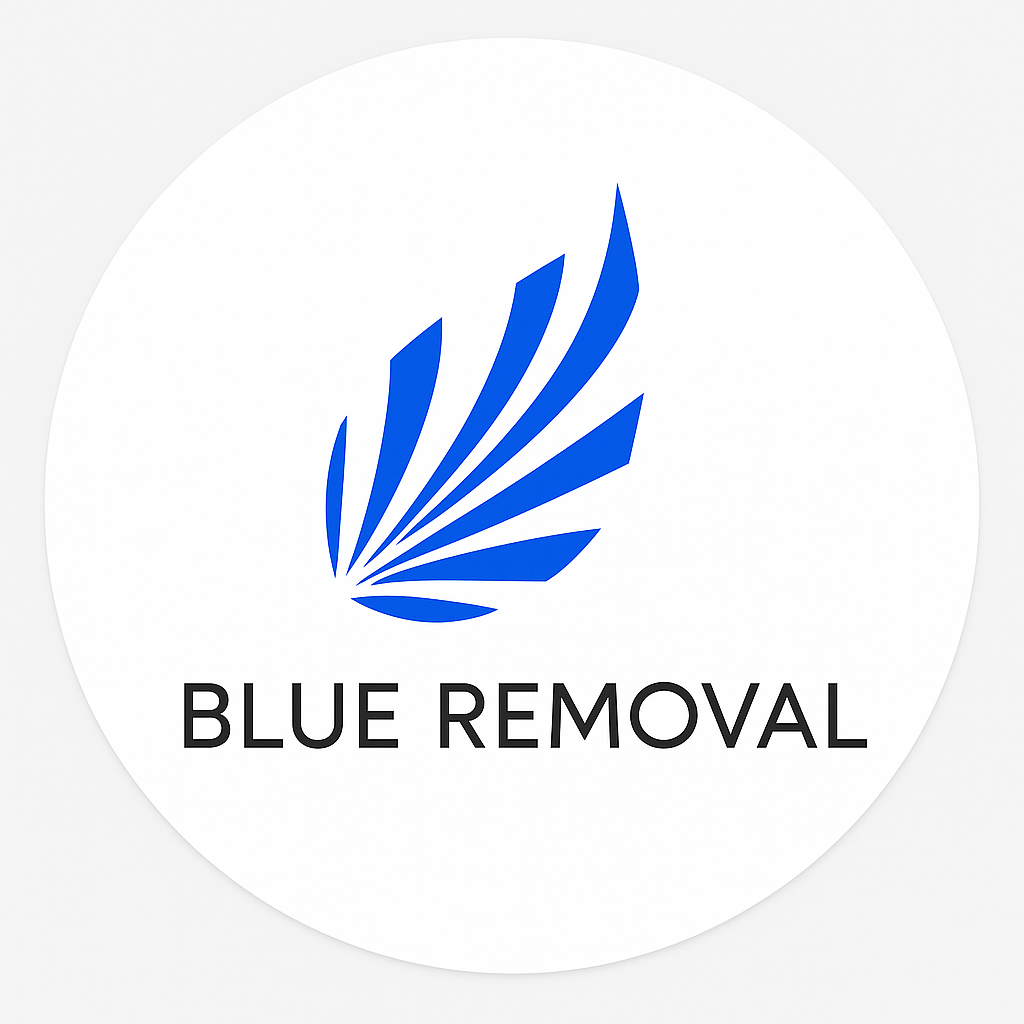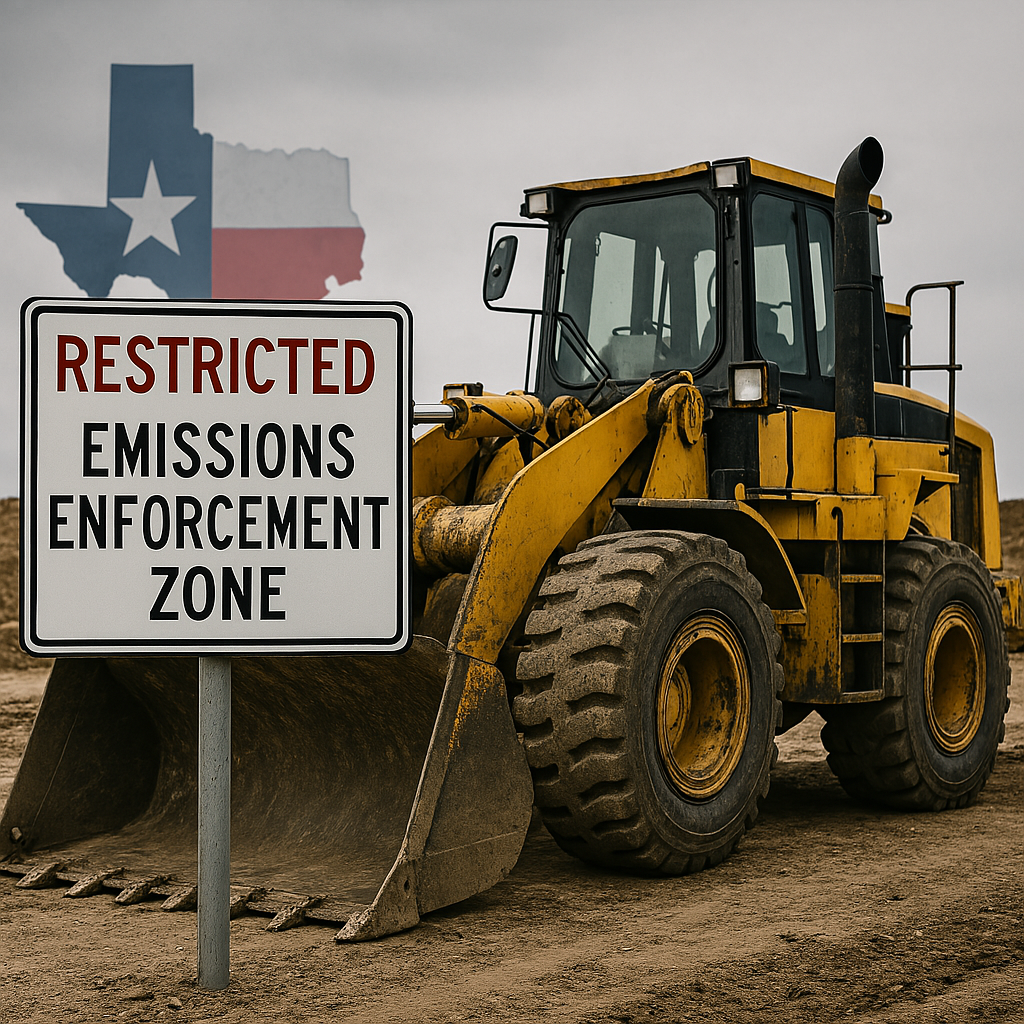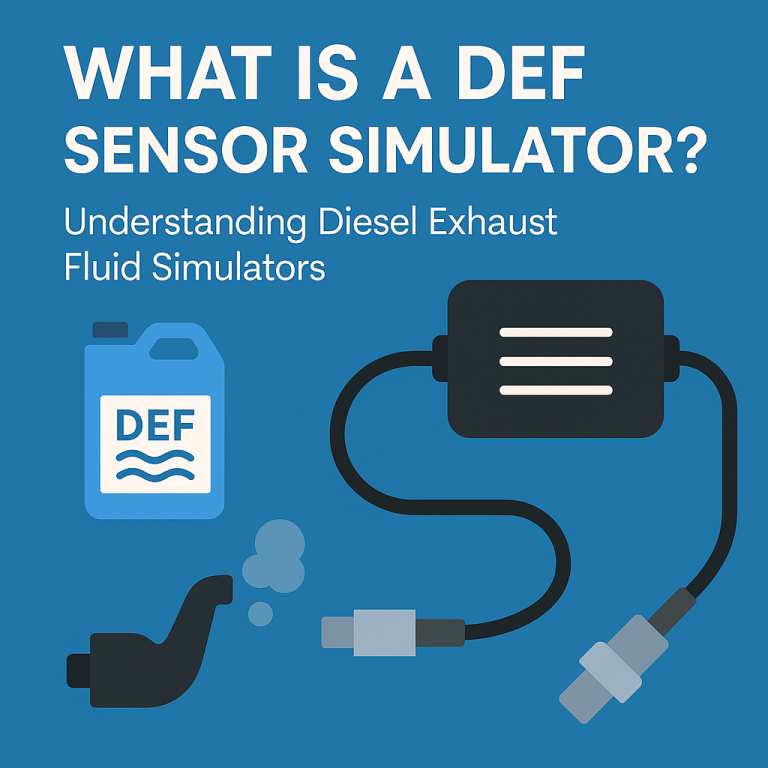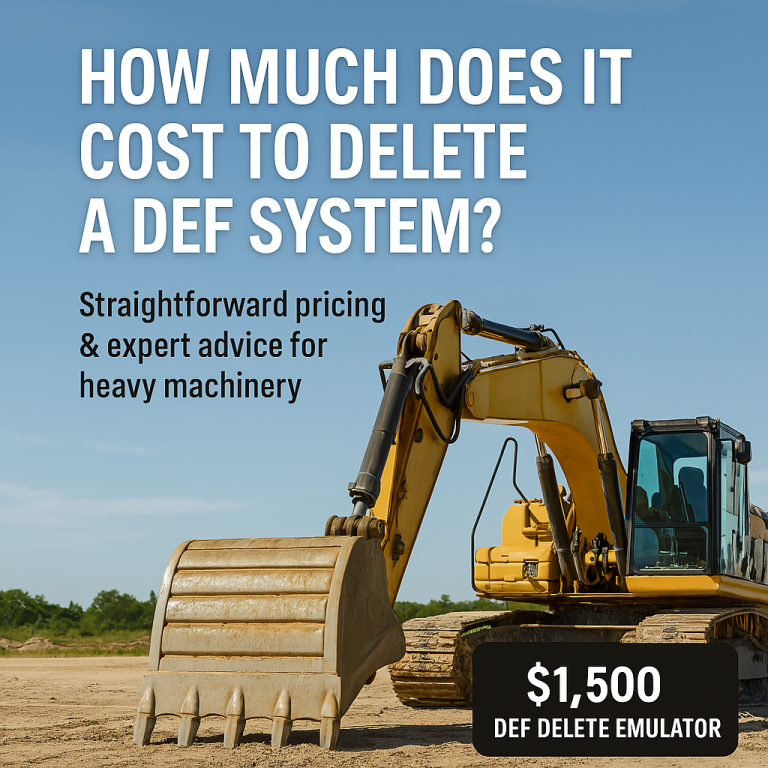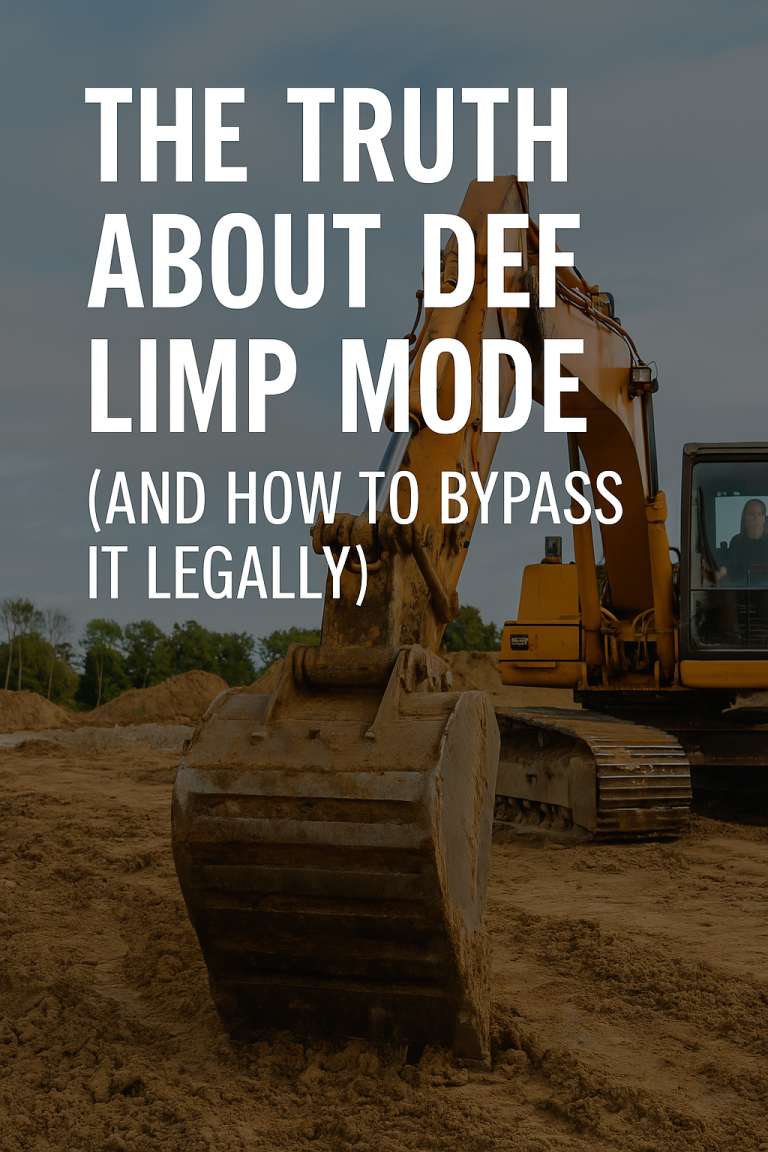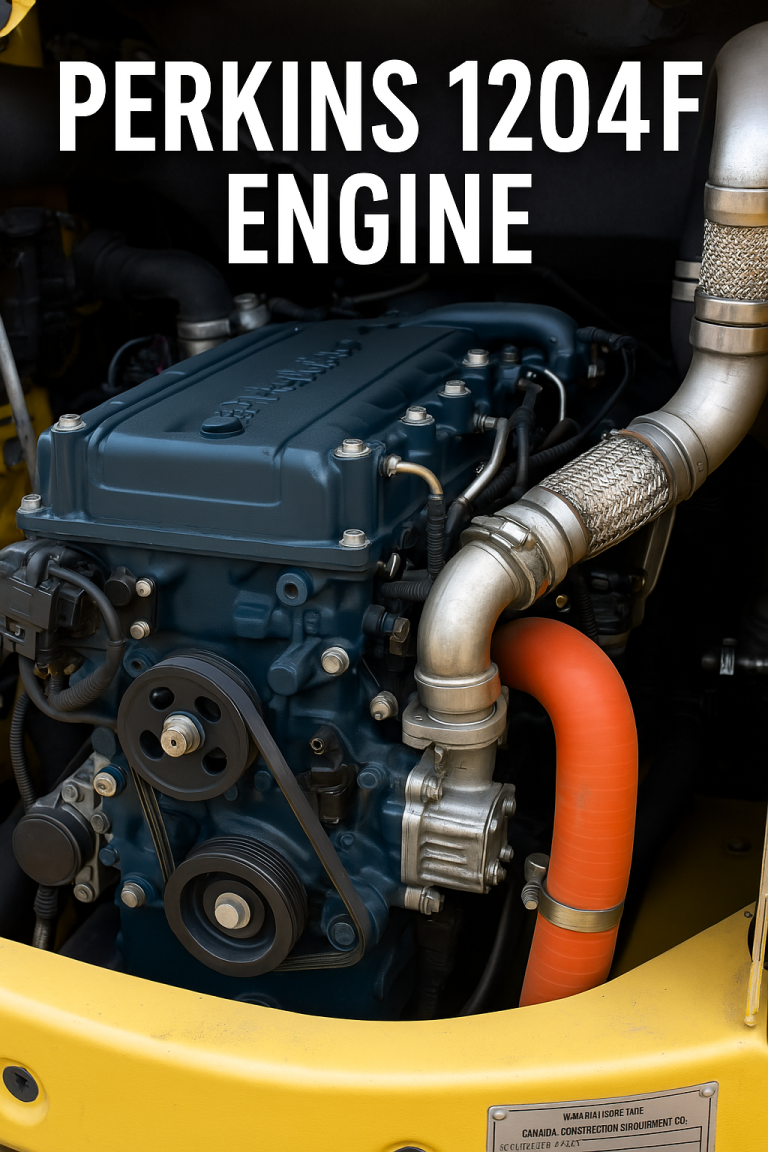Is DEF Delete Illegal in Texas? Laws & Consequences Explained
Many diesel truck owners consider a DEF delete to boost performance, reduce fuel costs, and avoid ongoing system failures. But before making any changes, it’s important to understand the legal status of DEF deletes in Texas — and the serious risks involved.
In this guide, we’ll break down Texas DEF delete laws, federal regulations, potential fines, and legal alternatives that can still improve your diesel engine’s performance.
✅ For construction equipment, our DEF delete emulators offer a legal, off-road solution to stop DEF faults — no software tuning or hardware removal needed.
✅ What Is a DEF Delete?
A DEF delete refers to the removal or bypassing of the Diesel Exhaust Fluid system, which is part of the Selective Catalytic Reduction (SCR) emissions system in diesel engines.
The SCR system helps reduce harmful NOx emissions to meet EPA regulations, but it can cause:
- Limp mode from sensor faults
- Expensive injector or pump failures
- Repeated DEF warning lights
- Unnecessary downtime
🚚 Why Do People Consider a DEF Delete?
Drivers and fleet owners consider deletes to:
✔ Improve MPG by reducing DEF fluid use
✔ Remove power restrictions caused by emissions control systems
✔ Avoid costly repairs from failing DEF components
✔ Extend engine life by reducing exhaust buildup and heat
⚖ Is DEF Delete Illegal in Texas?
Yes. Deleting the DEF system is illegal in Texas under both state and federal law.
Texas follows the EPA’s Clean Air Act (CAA), which prohibits any tampering with emissions control systems — including DEF, DPF, SCR, and EGR components.
📜 Key Laws That Ban DEF Delete in Texas
🚫 Federal Law – The Clean Air Act
- Illegal to sell, install, or operate emissions defeat devices
- Applies to individuals, shops, and businesses
- Strict enforcement by EPA and DOJ
🚫 Texas Emissions Laws
- All road-registered diesel vehicles must pass annual emissions inspections
- Removing emissions equipment leads to automatic inspection failure
- Your truck may be declared non-compliant and unregistered
⚠️ Our DEF delete emulators are designed only for off-road, unregistered machinery, such as excavators, loaders, crushers, and farm equipment.
💸 Penalties for DEF Delete in Texas
Deleting your DEF system isn’t just risky — it can be extremely costly.
For Vehicle Owners:
- ❌ Fines up to $4,500 per violation
- ❌ Failed inspection and suspended registration
- ❌ Reduced resale value and limited title transfer options
For Shops & Installers:
- ❌ Fines up to $50,000 per day per violation
- ❌ Loss of business licenses and civil lawsuits
- ❌ EPA enforcement and long-term legal exposure
❌ Will My Truck Pass Inspection with a DEF Delete?
No. Deleted trucks will fail Texas emissions inspections.
Inspectors will check for:
✔ OBD-II system compliance
✔ Presence of DEF, DPF, SCR, and EGR components
✔ Any software tampering or diagnostic flags
If you fail, you must restore the DEF system before you can legally drive on Texas roads again.
✅ Are There Legal Alternatives to DEF Delete?
If you’re looking for better performance — legally — consider:
✔ ECU tuning that does not bypass emissions systems
✔ DPF & EGR cleaning services
✔ High-quality DEF fluid to prevent injector clogging
✔ Regular DEF maintenance to extend system life
If you’re working with off-road machines, check out our DEF Delete page for legal solutions that don’t require tuning or system removal.
🛠 Final Thoughts: Is a DEF Delete Worth the Risk?
While deleting DEF may sound like an easy fix, the legal and financial consequences in Texas are serious. You could face:
- Thousands in fines
- Failed inspections and registration blocks
- Long-term liability and resale issues
✅ Stick to legal upgrades for road-legal trucks.
✅ Only consider DEF delete solutions for compliant off-road equipment.
🔧 Explore our DEF delete solutions for off-road construction and farm equipment — no software flashing, no error codes, and no downtime.
🔧 Need help finding a legal DEF solution for your diesel truck or machinery?
Contact us — we’re available 7 days a week and ship worldwide.
